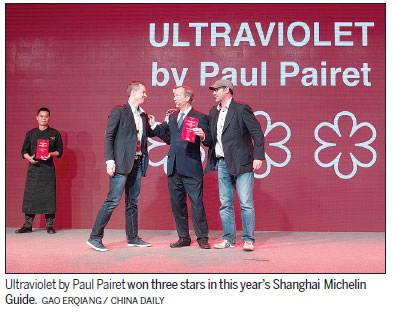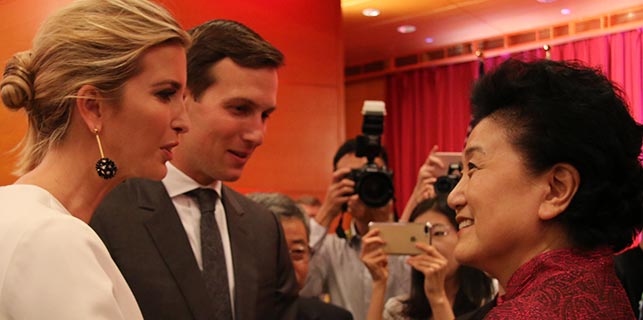The cream of the crop
First launched last September, the Shanghai Michelin Guide was widely criticized for its distinct lack of local eateries.
The second edition of the guide, which was launched on Sept 20, has done little to rectify that problem.
None of the 26 restaurants that were awarded stars last year lost any stars while four new restaurants were added to the list.
Ultraviolet by Paul Pairet, which offers innovative cuisine by combining food with multi-sensorial technologies, and Cantonese restaurant T'ang Court were the only two three-starred restaurants in the guide. Michelin describes the food at a three-star restaurant as "exceptional" and "worth a special journey".
"The real big news is that Shanghai has now got two three-starred restaurants and this puts it in the league with cities like London," said Michael Ellis, international director of the Michelin Guides. "It shows Shanghai is a truly recognized fine dining destination."
Founded by French chef Paul Pairet in 2012, Ultraviolet does not have a fixed dining location. Rather, guests who have made reservations gather at a designated place before being shuttled to the secret dinner space. A meal at Ultraviolet costs between 4,000 to 8,000 yuan ($607 to 1,214) per person. Diners usually have to make reservations three months ahead.
In response to criticisms like whether a Western food guide could possibly appreciate the complexity of China's eight major cuisines, Ellis noted that the majority of the inspectors for the Shanghai guide are Chinese. He added that Asia, and China in particular, will become a big part of the future of Michelin Guides.
"Not everybody has to agree with us. We have a unique voice and view of things. But in general, I think we tend to capture a good photo of what the food scene is. And it gets better over time. We are certainly not encyclopedic. We don't pretend to cover everything," he said.
First launched in 1900 to boost the demand for cars and tires, the Michelin Guide is today regarded by many chefs as the most coveted culinary accolade in the world. It is available in 28 countries worldwide. It was first introduced to Asia in 2009 when the company released the guide for Hong Kong.
xujunqian@chinadaily.com.cn










